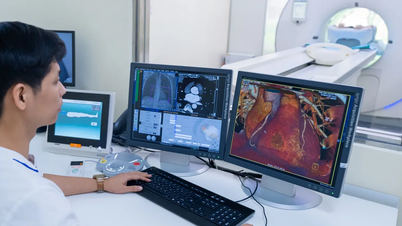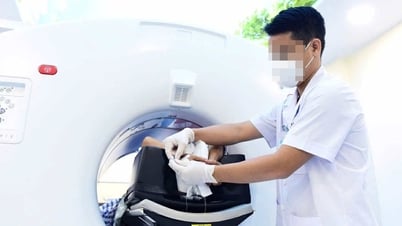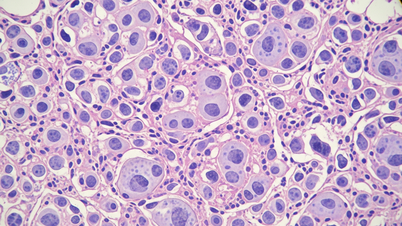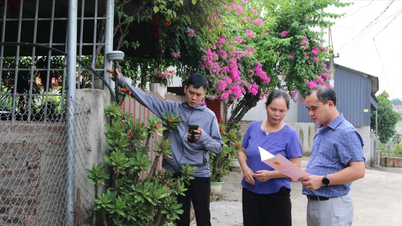Leticia Paul (22 years old, Brazilian) had a severe allergic reaction to the contrast agent used during a CT scan at Alto Vale Regional Hospital in Rio do Sul, Brazil. Immediately after the incident, Leticia was intubated, the emergency team also tried to resuscitate her but she passed away less than 24 hours later.
Sharing with local press, Ms. Sandra Paul, Leticia's aunt, said that at the time of the anaphylactic shock, her niece was going for a routine check-up because she had a history of kidney stones.

Leticia suddenly went into anaphylactic shock due to an allergy to contrast dye during a CT scan (Photo: Jam Press).
Anaphylaxis is a “sudden, severe, and life-threatening allergic reaction that can cause airway constriction, difficulty breathing, swelling of the throat, a drop in blood pressure, and other dangerous symptoms,” according to Johns Hopkins Medicine .
Iodinated contrast media, widely used in CT, MRI and X-rays, enhance the clarity of images of organs and tissues. Only 1 in 5,000 to 1 in 10,000 cases of contrast media use experience complications. Therefore, this is a rare but extremely serious complication that requires immediate medical intervention.
Leticia Paul was a promising young lawyer. She had just graduated from the law school of the Sinodal Ruy Barbosa University and was pursuing a postgraduate degree in real estate law and business. Her sudden passing has left her family, friends and the community in great pain.
"My niece is really passionate about law and studies hard. She is a progressive and ambitious person and will definitely be successful and famous in the future," said Sandra Paul.
In response to this case, Alto Vale Regional Hospital issued an official statement, expressing condolences and affirming that all procedures were carried out in accordance with regulations.
According to the Brazilian Medical Council, before performing imaging tests that use contrast media, thorough screening for allergies, asthma, or kidney disease is required to minimize risks. The team must have epinephrine, corticosteroids, and antihistamines on hand for emergency treatment.
However, even with these measures, anaphylaxis can still occur in people with no history of allergies, as was the case with Leticia, who reportedly had multiple CT scans before without problems.
Leticia's case is not the first. Last February, a similar case occurred at Northampton General Hospital, England, when 66-year-old Yvonne Graham suffered a cardiac arrest after being injected with contrast and died just two hours later.
Her daughter, Yolanda, argued that contrast should not have been used because her mother had stage 3 kidney disease. At that point, an epinephrine injection could have saved her life.
Source: https://dantri.com.vn/suc-khoe/co-gai-22-tuoi-qua-doi-vi-soc-phan-ve-sau-khi-chup-ct-20250825121513115.htm








![[Photo] General Secretary To Lam attends the 80th anniversary of Vietnam's diplomacy](https://vphoto.vietnam.vn/thumb/1200x675/vietnam/resource/IMAGE/2025/8/25/3dc715efdbf74937b6fe8072bac5cb30)



































































































Comment (0)